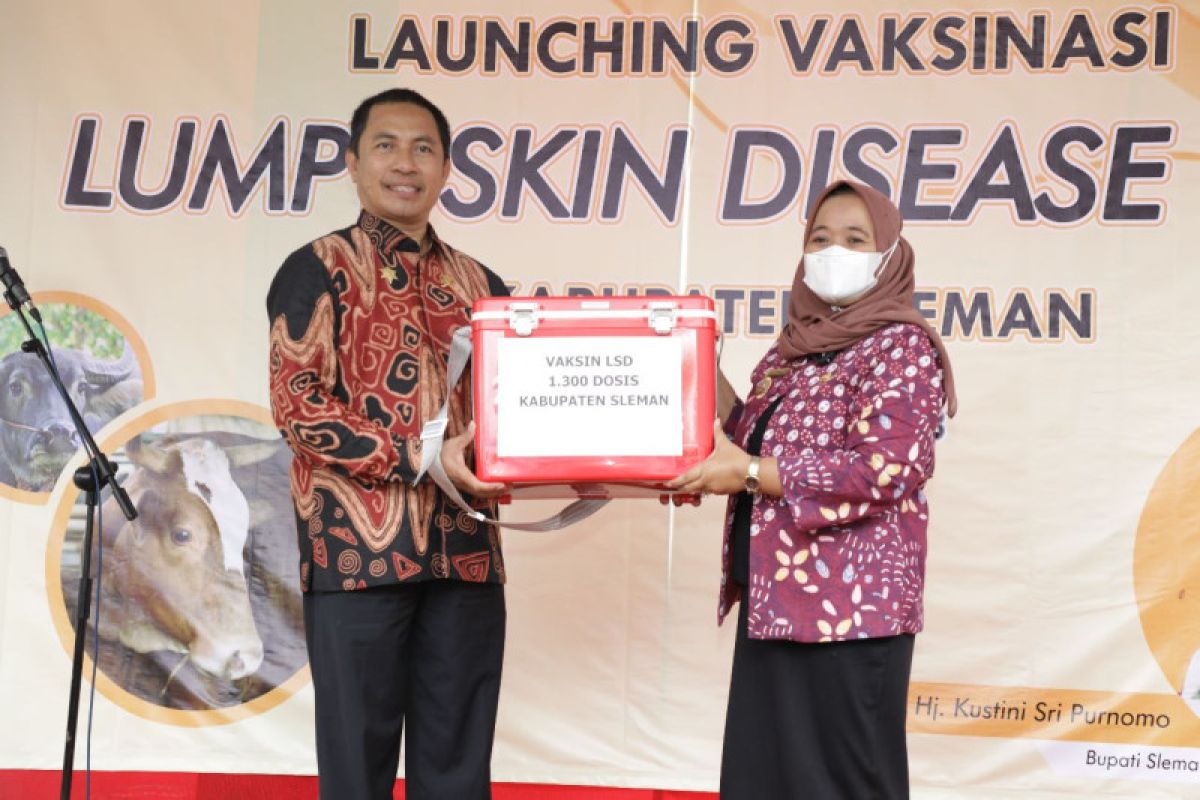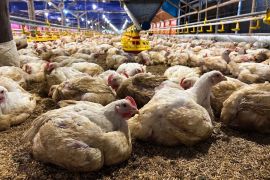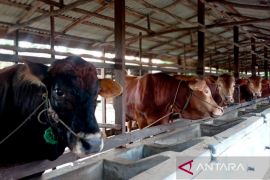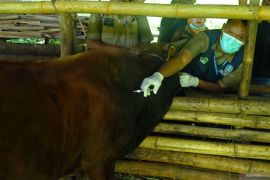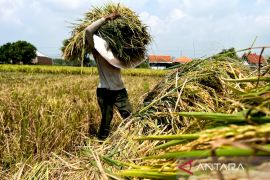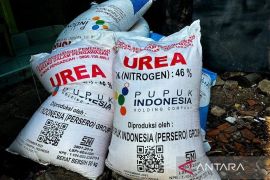The impact caused by LSD is a significant decrease in milk production, weight loss, infertility, sterility in breeding bulls, miscarriage, and permanent skin damage that could cause huge economic losses.Sleman, Yogyakarta (ANTARA) - Currently, two diseases have the potential to disrupt livestock productivity, namely foot-and-mouth disease (FMD) and lumpy skin disease (LSD), the Agriculture Ministry has informed.
"These two diseases that can attack livestock have the potential to disrupt livestock productivity if they are not handled properly," Secretary of the ministry’s Directorate General of Livestock and Animal Health Makmum said at the launch of the first LSD vaccination in Sleman District, Yogyakarta, on Wednesday.
His party lauded Sleman district's effort to conduct the first LSD vaccination in the region.
He said he hopes that the proactive effort made by the district government could be implemented in other areas in order to check the spread of the LSD virus.
It is also hoped that the vaccination can be carried out properly and that by 2023, the entire cattle and buffalo population in Indonesia will be vaccinated and operational costs will be provided to control both FMD and LSD, he added.
Head of the Agriculture, Food, and Fisheries Service of Sleman district, Suparmono, said the first case of LSD in Sleman was detected by veterinarians in the working area of the Mlati Animal Health Center on December 22, 2022.
“The clinical symptoms found were lumps on the cow's skin suspected of being a suspected LSD disease," he disclosed.
LSD is an infectious disease caused by the capripoxvirus, which belongs to the Poxviridae family, which is also known as the Neethling virus, he informed.
Until now, LSD has only affected cattle and buffaloes, which are often associated with smallpox outbreaks in sheep (sheeppox).
"Clinical signs shown include the appearance of lumps on the skin around the neck and can spread throughout the body. These lumps cause itching and make cows nervous, lacking in appetite, and (cause) increased body temperature, with an incubation period of 28 days," he informed.
According to him, LSD can spread through direct contact with sick animals or contaminated food and drink. The spread can be worsened by the presence of transmission from disease-carrying vectors such as mosquitoes (Culicoides), flies (Stomoxys sp), and ticks (Riphicephalus sp).
"LSD is not contagious to humans. The virus that causes LSD can be found in the blood of infected animals within three weeks after infection and can even be found in the semen of male animals six weeks after infection," Suparmono said.
In cases of LSD in the field, even though the mortality rate was below 10 percent, it was often reported that mortality could reach 45 percent, he noted.
"The impact caused by LSD is a significant decrease in milk production, weight loss, infertility, sterility in breeding bulls, miscarriage, and permanent skin damage that could cause huge economic losses," he said.
Related news: After FMD outbreak, W Java focuses on cattle population recovery
Related news: Focusing on animals that have not yet recovered: FMD task force
Translator: Victorianus Sat Pranyoto, Resinta S
Editor: Rahmad Nasution
Copyright © ANTARA 2023
